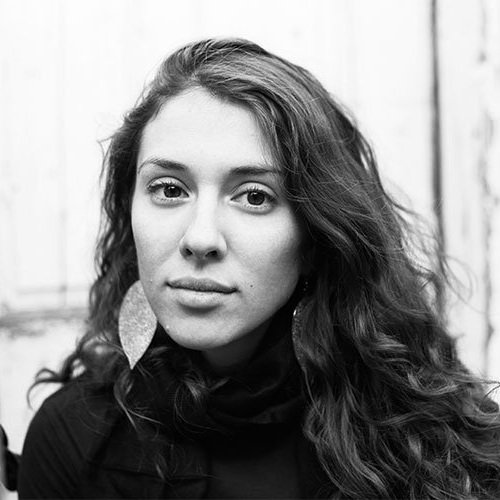Julia Kolchinsky Dasbach
Omen
We heard it in the wall first,
the morning scurrying
behind our headboard,
rats, we thought, and blamed
the neighbors. A few sharp fists
and all would quiet. How wings
can sound like feet. Bird
like what it preys on.
Let me out
no different from
let me in. No telling how
its iridescent neck like oil-spill
ended up perched
on our bathroom door. Raven?
Wren? Starling? Perhaps
a common grackle. A bird
in the house means
message at best, means
death within these walls,
means there are still walls
and a house to hold them.
A dead bird or white bird
is worse. My son called ours,
house bird, begged, please,
don't leave. It didn’t listen.
Black wings to the fridge
then out the back into sunlight.
A bird in the house means
house bird. Means my son
will keep looking every time
he goes outside, maybe, it'll find
my worm, he says, and they can be
friends. How love can sound
like what it devours. Bird
like the boy it preys on.
Bird the closest prayer gets
to god. A bird in the house
means death. A bird in the wall
means broken. A bird means,
please, don't leave.
Week 40: Pumpkin
Summer solstice stings the Philly skyline
after an oil refinery explosion turned
clouds to lanterns as you watched
your newborn scream, her body pulsing
violet from needle pricks they stuck and stuck
again, draining her garnet-apple heels
to check your blood hadn’t scorched hers,
the lethal mixing of opposing blood types
your mother feared would turn you
infertile after your first born. But you
don’t fear what your bodies can do
to each other’s, don’t fear the red or yellow
you can see ignite her skin, the bilirubin
rising, amber glow around her iris, the danger
to her body, having come from yours. Don’t breathe,
warn friends from out of state, afraid
the air is poison. But you know
there’s no escaping what’s above
the skin or what’s below. The year before
you were born, Ukraine’s sky seethed
radioactive too, and you imagined a bear
ate the stars, you tore open its name:
Chernobyl, Cherno Bol’, black pain,
imagined mothers watching in awe
as light fell from the bear’s mouth
into their children’s, imagined
how some closed their vents and blinds
and mouths, afraid of flying ash, constellations
doused dark, more terrified of what’s been made
invisible. But everyone who inhaled
suffered all the same, bear-blood
boiling slowly from inside, generations
of infertile women and children
lost among the stars. Here, with your daughter,
not 48-hours old, you tear her
name apart, Remy Luray, one
who rows a crooked river, a cavern,
the sky, one who lures your body
to remember. Her hot, hungry mouth
roves for your star-cracked nipple.
Remy opens, fearless, tea-candle eyes.
Gulps colostrum, lurid, blood-laced,
to protect her from generations
of blazen air she’s unaware
already flame inside her.
Julia Kolchinksy Dasbach emigrated from Ukraine as a Jewish refugee when she was six years old. She is the author of three poetry collections: The Many Names for Mother, winner of the Wick Poetry Prize (Kent State University Press, 2019), finalist for the Jewish Book Award; Don't Touch the Bones (Lost Horse Press, 2020), winner of the 2019 Idaho Poetry Prize; and 40 WEEKS, forthcoming from YesYes Books in 2023. Her poems have appeared in POETRY, Blackbird, American Poetry Review, and The Nation, among others. She holds an MFA from the University of Oregon and a Ph.D. in Comparative Literature from the University of Pennsylvania where she defended a dissertation titled: “Lyric Witness: Intergenerational (Re)collection of the Holocaust in Contemporary American Poetry.” She is the Murphy Fellow in Poetry at Hendrix College and recently relocated to Little Rock, Arkansas with her two kids, cat, dog, and husband.

